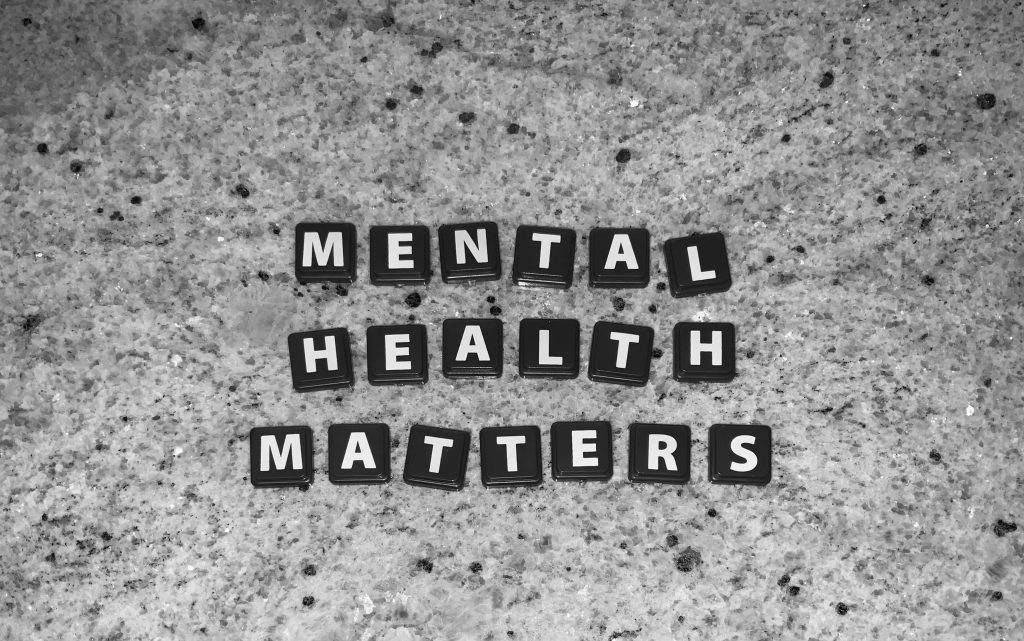Mental health is a topic that touches the lives of nearly everyone in some way, whether through personal struggles, the experiences of friends and family, or even societal discussions. The importance of understanding and prioritizing mental health cannot be overstated. In this blog post, we will explore the multifaceted landscape of mental health, discussing its significance, common challenges, and strategies for promoting well-being. We aim to shed light on this crucial subject and empower readers with knowledge and resources to foster their mental health.
The Significance of Mental Health

Mental health is an integral component of our overall well-being. It affects how we think, feel, and behave, and it plays a vital role in our daily lives. Optimal mental health enables us to handle stress, form meaningful relationships, make sound decisions, and adapt to life’s ups and downs. In contrast, poor mental health can lead to a range of difficulties, including anxiety, depression, substance abuse, and various other mental disorders.
The Challenges We Face
- Stigma: One of the most significant challenges in the realm of mental health is the persistent stigma attached to it. Many individuals are afraid to talk openly about their struggles for fear of being labeled or judged. This stigma can hinder individuals from seeking help when they need it most.
- Access to Care: Access to mental health care is not equitable, with many people, especially in underserved communities, facing barriers to obtaining necessary services. This disparity in access exacerbates mental health issues for marginalized groups.
- Lack of Awareness: A lack of awareness and understanding about mental health is another challenge. This can lead to misdiagnosis, delayed treatment, and the perpetuation of harmful stereotypes.
Strategies for Promoting Mental Well-being

- Destigmatizing Mental Health: We must collectively work to break the stigma surrounding mental health. Open and honest conversations about mental health struggles can help reduce the fear and judgment that often deter individuals from seeking help.
- Seeking Professional Help: Mental health professionals, such as therapists, counselors, and psychiatrists, play a crucial role in helping individuals manage their mental health. It’s important to recognize that seeking help is a sign of strength, not weakness.
- Building a Support System: Having a strong support system is invaluable for maintaining good mental health. This can include friends, family, or support groups where individuals can share their experiences and receive empathy and encouragement.
- Self-Care: Engaging in self-care practices is essential for promoting mental well-being. This may involve activities like exercise, mindfulness, meditation, and ensuring adequate sleep and a balanced diet.
- Education and Awareness: Educating ourselves about mental health is vital. By understanding common mental health issues, their signs, and the available resources, we can better support ourselves and those around us.
- Stress Management: Learning how to manage stress is a critical skill for maintaining good mental health. Techniques such as deep breathing, time management, and relaxation exercises can help reduce stress levels.
- Community Involvement: Engaging with your community, whether through volunteering, joining clubs, or participating in local events, can foster a sense of belonging and social support, which can positively impact mental health.
Conclusion
Mental health is a critical aspect of our lives, and addressing it is essential for our overall well-being. By acknowledging the significance of mental health, understanding the common challenges we face, and implementing strategies to promote well-being, we can create a society that is more supportive, empathetic, and aware.
Remember that mental health is a journey, not a destination. It’s okay to seek help when needed and to prioritize self-care. Together, we can work to reduce the stigma surrounding mental health, provide access to mental health services for all, and ensure that everyone has the resources and support they need to navigate the maze of mental health and thrive. Let’s embark on this journey towards a mentally healthier and happier world.
Sources:
Prince, M., Patel, V., Saxena, S., Maj, M., Maselko, J., Phillips, M. R., & Rahman, A. (2007). No health without mental health. The Lancet, 370(9590), 859–877. https://doi.org/10.1016/s0140-6736(07)61238-0
Patel, V., Flisher, A. J., Hetrick, S., & McGorry, P. D. (2007). Mental health of young people: a global public-health challenge. The Lancet, 369(9569), 1302–1313. https://doi.org/10.1016/s0140-6736(07)60368-7
Jorm, A. F. (2000). Mental health literacy. British Journal of Psychiatry, 177(5), 396–401. https://doi.org/10.1192/bjp.177.5.396







